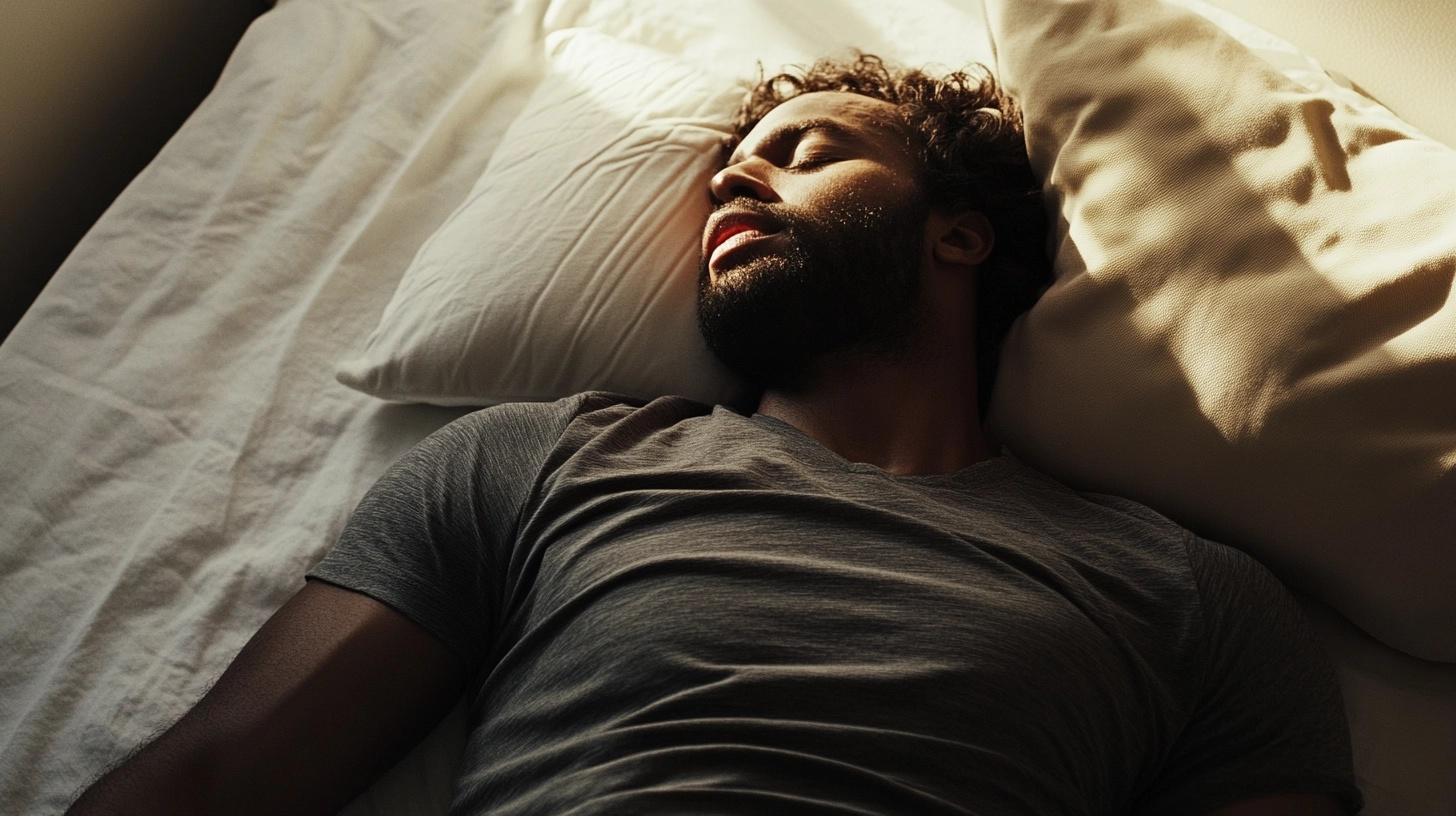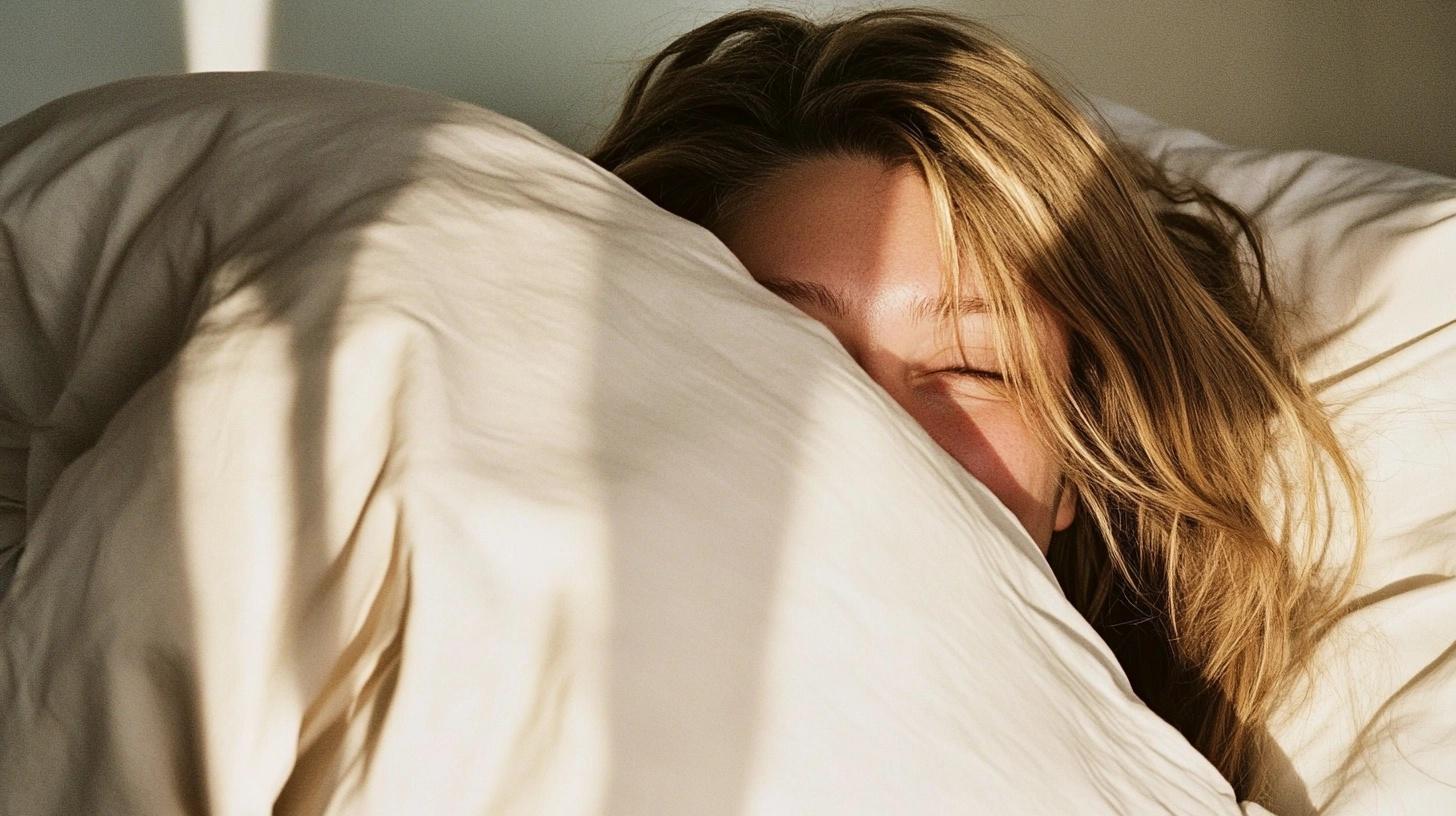What are the signs of a sleep-deprived co-worker?
Published

The cues that help you spot if a colleague needs more sleep
In previous articles, we’ve discussed the impact that sleep-deprived leadership can have on their subordinates, colleagues and, in extension, the fortunes of the company. Just as important as it is to lead a company with a sleep-positive attitude, it is of utmost importance to be able to spot the signs of a sleep-deprived co-worker and employee.
For example, are mood swings, poor attention or distraction common with members of your team? These could all be signs of a sleep-deprived workforce. In high-risk industries, spotting this could be the difference that can save lives. We guide you through the signs of sleep deprivation and the steps you can take to avoid accidents – or worse – at work, and at home.
In this article, we’ll cover:
Signs that indicate a co-worker needs more sleep
It’s estimated that 50-70 million people in the U.S. alone suffer from a sleep disorder. Sleep deprivation can be linked to a sleep disorder, but it may also be caused (and therefore also fixed) by our lifestyle choices. If sleep deficiency is left unchecked it can develop into a sleep disorder. Chances are high that you will know or work with someone that suffers from either a sleep disorder or sleep deprivation. Some external or physical signs can include:
- Drinking copious amounts of coffee – Needing several cups of joe to get through the day, can be a coping mechanism to get through the day when sleep has been poor during nighttime.
- Yawning – yawning is a classic sign of fatigue and if you catch yourself or a colleague yawning several times, chances are, you haven’t had a good night’s sleep.
- Eyes – the windows to our soul, also give us a good glimpse into our sleep habits. Although dark circles are mostly genetic, they can get darker with poor sleep. Similarly heavy, red eyes and bags under the eyes are tell-tale signs of poor sleep.
- Reaching out for junk food and sugar – Constantly snacking and reaching out for sugary and fatty foods may be compensating for lack of sleep. Sleeping less disrupts our circadian rhythm and also produces higher peaks of a lipid called endocannabinoid in our bloodstream which signals to us eating is a pleasure and increases our cravings.
- Weight gain – A result of the aforementioned reasoning, constant snacking due to sleep deprivation may eventually start showing on the scales. Hence a wholesome exercise regime should factor in hours of quality sleep.
- Mood swings – if you’ve noticed increased tension, conflict and argument, lack of sleep may be the culprit. Sleep deprivation has a negative impact on mood and can cause irritability and hostility.
- Being accident-prone – coordination and balance all require a well-rested brain. Sleep deprivation is known to affect human balance and posture control. If you’re feeling clumsy or notice a colleague, dropping things and generally not their sharp coordinated selves, this could be a red flag.
- Absenteeism and late to work – if you’ve noticed an uptick in absenteeism or lateness with colleagues, reserve judgment and instead see if lack of sleep is the culprit and how you can address this together.
Further signs of sleep deprivation that may be difficult to see directly, but still have an effect on work performance and qualitative output include:
- Cognitive functions are impacted – the link between sleep and cognitive processing has been established and poor sleep can therefore have a debilitating effect on tasks such as focusing, decision making and communicating.
- Driving is impaired – the trucking industry has long been aware of the driving impairments caused by sleep deprivation. In part, this awareness has been driven due to the heavy regulatory framework surrounding drivers and their need for adequate sleep. The consequences of lack of sleep in drivers or pilots can be fatal. However, the same standard needs to be applied in high-risk plants when operating dangerous machinery, where there is a similar risk for accidents with a sleep-deprived workforce.
- Repeating tasks – do you find you keep going back to do the same thing over and over? Memory is affected when you’re sleep-deprived. Forgetting tasks or briefing colleagues can be a common consequence of sleep deprivation. Also spending more time, but actually doing less is a frequent occurrence when you’re sleep-deprived.
- Risk-prone behavior increases – Your patience threshold is reduced when sleep-deprived and as consequence, you may be more disposed to taking risks or cutting corners. For traders, or employees in similar high-pressured environments, lack of sleep is therefore highly undesirable.
You’ve noted the signs – now what?
As governments and companies are taking note of the ramifications of poor sleep on businesses, there have been calls to encourage broad measures to help businesses see the value in sleep health and take action to address sleep deprivation. In the UK for example, sleep and recovery toolkits have been created as a guide for companies. In broad strokes this includes:
- Knowledge & Training on Sleep Health – Informing yourself about the importance of sleep quality and getting the correct support from leadership is essential for any sleep program to work. Share information on how employees can identify whether they’re sleep deprived. The spoon test for example, is a quick way to check at home. Also being able to guide sleep deprived co-workers to access the appropriate occupational health services is key.
- Workplace assessment – there are many proactive measures that can be put in place to create a sleep-aware workplace. As an example, ensuring the lighting and temperature at work is optimal for feeling awake and energized. Encouraging a more sleep-positive attitude as well as rest and recovery and promoting clear cut-off times for work are among the many actions the employer can undertake.
- Encouraging & Rewarding Sleep Recovery – Many companies are beginning to explore reward programs and benefits for employees who prioritize sleep. Encouraging employees to use sleep trackers (similar to the use of exercise programs with say, number of daily steps tracked and linking it to benefits.) Sleep trackers can give employees a clear picture of the amount of quality sleep they are receiving and the number of hours they’re clocking asleep. Employees in turn can link rewards to promoting better sleep habits.
- Consultation Process on Sleep Health – employee reviews are a good place to start including sleep health awareness. A review can serve the dual purpose of both informing employees that as an employer you’re supportive of their right to rest and recovery, prioritizing their wellbeing and also making employees aware of any sleep-promoting programs that the company is working on. Ensure any training is evidence based so the whole organization actually buys into why incorporating sleep is important and should be part of the company’s core values. Follow up and collect feedback on how your employees are doing and whether the company is managing to move the needle.
Supporting your sleep-deprived co-workers and employees to achieve better sleep health is simply just as important as promoting other wellness initiatives at the workplace. The beauty is that often a positive change in sleep habits will have a ripple effect on other areas of your health. Physical and mental wellness goals and sleep goals are interlinked in the same way that the bottom line of your company is linked to the sleep health of your workforce. Time to get your snooze on!





